Films from the country "pologne", sorted by rating
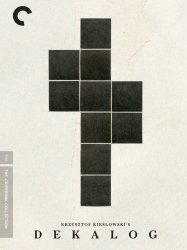
The Decalogue (TV series) (1988)
, 1hDirected by Krzysztof Kieślowski
Origin Pologne
Genres Drama
Themes Films about religion
Actors Krystyna Janda, Artur Barciś, Grażyna Szapołowska
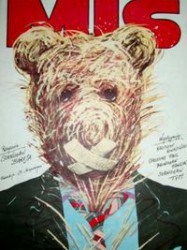
Teddy Bear (1981)
, 1h51Origin Pologne
Genres Comedy
Actors Stanisław Tym, Christine Paul-Podlasky, Krzysztof Kowalewski, Janusz Zakrzeński, Bronisław Pawlik, Jan Kociniak
Le gérant (Rysiek) d'un club de sport étatique doit arriver à Londres avant son ex-femme Irene, pour collecter une somme d'argent placée sur un compte commun pendant leurs jours heureux. Mais sortir d'un pays communiste n'est jamais facile, même pour un malin comme Rysiek.

Tell No One (2019)
, 2h1Origin Pologne
Genres Documentary
Themes Films about children, Films about religion, Documentary films about law, Documentary films about religion, Documentary films about child abuse, Films about child abuse
Ce documentaire a la particularité « de confronter directement des victimes de prêtres pédophiles, en caméra cachée, avec leurs agresseurs ». Il « met en cause la hiérarchie épiscopale dans la faiblesse — voire l’absence — des sanctions dans les cas de pédophilie », dénonçant l'hypocrisie de l'église polonaise et l'impunité des prêtres agresseurs.
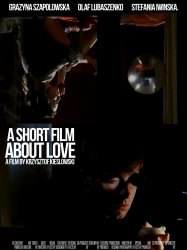
A Short Film About Love (1988)
, 1h26Directed by Krzysztof Kieślowski
Origin Pologne
Genres Drama, Romance
Themes Films about suicide
Actors Grażyna Szapołowska, Olaf Lubaszenko, Artur Barciś, Stanisław Gawlik
Nineteen-year-old Tomek (Olaf Lubaszenko) is living in an apartment complex in Warsaw with his godmother—staying in her son's room while he's away. Raised in an orphanage, the shy Tomek has few friends and works as a postal clerk. Tomek has been spying on a beautiful older woman, Magda (Grazyna Szapolowska), who lives in an adjacent apartment complex. Using a telescope, he watches her every night performing mundane tasks, working on her artwork, and entertaining men. To get closer to her, he slips fake postal notices in her mailbox for a nonexistent money order at his post office. He also calls her anonymously to hear her voice. Tomek's obsession is focused more on her everyday activities rather than her sex life; when he sees her becoming sexual with men, he trains the telescope away and does not watch.
 , 3h44
, 3h44Directed by Tadeusz Chemielewski
Origin Pologne
Genres War, Comedy, Action, Adventure, Historical
Themes Political films
Actors Marian Kociniak, Wirgiliusz Gryń, Leonard Pietraszak, Janusz Kłosiński, Emil Karewicz, Mieczysław Stoor
À la suite de coïncidences comiques, un soldat polonais, Franciszek Dolas, est convaincu d'être à l'origine de la Seconde Guerre mondiale. En essayant de se racheter à tout prix, il accumule de nouveaux ennuis. Ce faisant, il se retrouve sur les différents fronts de guerre (Yougoslavie, mer Méditerranée, Proche-Orient, Italie) avant de retourner en Pologne.

A Short Film About Killing (1988)
, 1h24Directed by Krzysztof Kieślowski
Origin Pologne
Genres Drama, Crime
Themes Prison films, Films about capital punishment
Actors Mirosław Baka, Krystyna Janda, Krzysztof Globisz, Maciej Maciejewski, Olgierd Łukaszewicz, Artur Barciś
Waldemar Rekowski (Jan Tesarz) is a middle-aged taxicab driver in Warsaw who enjoys his profession and the freedom it affords. His concern for turning a profit leads him to ignore some potential fares in favor of others. An overweight and crude man, Waldemar also enjoys staring at young women.
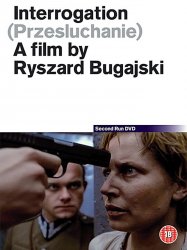
Interrogation (1989)
, 1h58Directed by Ryszard Bugajski
Origin Pologne
Genres Drama, Thriller, Horror
Themes Politique, Prison films, Films about sexuality, Erotic films, Sexploitation films, Political films, Women in prison films
Actors Krystyna Janda, Adam Ferency, Janusz Gajos, Agnieszka Holland, Anna Romantowska, Bożena Dykiel
Tonia (Krystyna Janda) is a cabaret singer in post-World War II Poland towards the end of the life of Soviet leader Joseph Stalin. After she performs for soldiers, she is arrested without being told why, and placed in a political military prison to be interrogated. Over a course of some years, she is humiliated and tortured by prison officials into confessing to crimes she did not commit. After failing to sign a document detailing a false confession, she is taken to the prison shower block and locked into a small cage between the floors. The water is turned on and the room is slowly flooded. She is released at the last moment and told to sign the confession form again, which she continues to refuse to do. While in prison, she demands that she sees her husband. One day he visits the prison, but is told by the officials of her alleged infidelities prior to her arrest, and he tells her that he doesn't want to see her again. She unsuccessfully attempts suicide. She develops a romantic relationship with an officer, one of the interrogating prison officials, whom she tells of the absurdity of the system he believes in. She becomes pregnant by him and, like other female inmates, is forced to give up her child for adoption, before eventually being released and reunited with her child. The officer secures her release and her ability to reclaim their child and then commits suicide.

Kanal (1957)
, 1h35Directed by Janusz Morgenstern, Andrzej Wajda
Origin Pologne
Genres Drama, War
Themes Political films
Actors Tadeusz Janczar, Wieńczysław Gliński, Vladek Sheybal, Stanisław Mikulski, Emil Karewicz, Jan Englert
It is 25 September 1944, during the last days of the Warsaw Uprising. Lieutenant Zadra leads a unit of 43 soldiers and civilians to a new position amidst the ruins of the now isolated southern Mokotów district of Warsaw.

Vabank (1981)
, 1h48Directed by Julius Machulski
Origin Pologne
Genres Comedy, Comedy thriller, Crime
Themes Heist films, Gangster films, Escroquerie
Actors Jan Machulski, Leonard Pietraszak, Witold Pyrkosz, Krzysztof Kiersznowski, Ewa Szykulska, Henryk Bista
L'histoire se déroule dans Varsovie des années 1930.
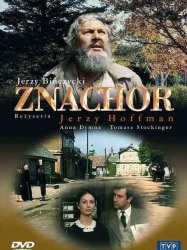
The Quack (1982)
, 2h8Directed by Jerzy Hoffman
Origin Pologne
Genres Drama, Romance
Actors Jerzy Bińczycki, Anna Dymna, Arkadiusz Bazak, Igor Śmiałowski, Piotr Fronczewski, Artur Barciś
Un chirurgien cardiaque renommé apprend que sa femme le quitte le jour de leur anniversaire de mariage et qu'elle prend leur fille avec elle.
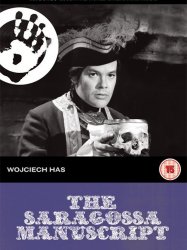
The Saragossa Manuscript (1965)
, 3h2Directed by Wojciech Has
Origin Pologne
Genres Drama, Science fiction, Fantastic, Comedy, Fantasy, Historical
Themes Ghost films, Political films, Histoire de France, Napoleonic Wars films, French Revolution films
Actors Iga Cembrzyńska, Kazimierz Opaliński, Elżbieta Czyżewska, Jan Machulski, Beata Tyszkiewicz, Gustaw Holoubek
During a battle in the Aragonese town of Saragossa (Zaragoza) during the Napoleonic Wars, an officer retreats to the second floor of an inn. He finds a large book with drawings of two men hanging on a gallows and two women in a bed. An enemy officer tries to arrest him but ends up translating the book for him; the second officer recognizes its author as his own grandfather, who was a captain in the Walloon Guard.

Camera Buff (1979)
, 1h57Directed by Krzysztof Kieślowski
Origin Pologne
Genres Drama, Comedy, Romance
Actors Jerzy Stuhr, Krzysztof Zanussi, Jerzy Nowak
The film is set in the late 1970s in Wielice, People's Republic of Poland. Factory worker Filip Mosz (Jerzy Stuhr) is a nervous new father and a doting husband when he begins filming his daughter's first days with a newly acquired 8mm movie camera. He believes, as he tells his wife, that he now has everything he ever wanted since his youth as an orphan, but when the local Communist Party boss asks him to film an upcoming jubilee celebration of his plant, his fascination with the possibilities of film begins to transform his life.

The Promised Land (1975)
, 2h59Directed by Andrzej Wajda
Origin Pologne
Genres Drama, Historical
Actors Daniel Olbrychski, Wojciech Pszoniak, Andrzej Seweryn, Anna Nehrebecka, Kalina Jędrusik, Franciszek Pieczka
Karol Borowiecki (Daniel Olbrychski), a young Polish nobleman, is the managing engineer at the Bucholz textile factory. He is ruthless in his career pursuits and unconcerned with the long tradition of his, now financially declined, family. He plans to set up his own factory with the help of his friends Max Baum (Andrzej Seweryn), a German and heir to an old handloom factory, and Moritz Welt (Wojciech Pszoniak), an independent Jewish businessman. Borowiecki's affair with Lucy Zucker (Kalina Jędrusik), wife of another textile magnate, gives him advance notice of a change in cotton tariffs and helps Welt to make a killing on the Hamburg futures market. But more money has to be found, so all three characters cast aside their pride to raise the necessary capital.
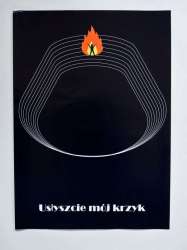
Hear My Cry (1991)
, 46minutesDirected by Maciej Drygas
Origin Pologne
Genres Documentary
Le film raconte l'histoire de Ryszard Siwiec, un comptable de Przemyśl qui s'immola le 8 septembre 1968 en plein milieu d'un festival national pour célébrer la récolte au Stadion Dziesięciolecia à Varsovie pour protester contre le régime communiste et l'Invasion de la Tchécoslovaquie par le Pacte de Varsovie. Grièvement brûlé, Siwiec a été transporté d'urgence à l' Hôpital Praski où il décéda quatre jours plus tard.

Corpus Christi (2020)
Directed by Jan Komasa
Origin Pologne
Genres Drama
Actors Łukasz Simlat, Leszek Lichota
Daniel est un jeune de 20 ans dans un centre éducatif surveillé en semi-liberté qui accueille des délinquants souvent violents. Il est attiré par la prêtrise, mais il n'a pas achevé sa scolarité secondaire et en outre son casier judiciaire lui ferme la porte du séminaire. Envoyé pour un emploi dans une scierie, il se retrouve empêtré dans un mensonge non-prémédité où il prétend en discutant avec une jeune fille rencontrée dans une église être prêtre. Le curé qui l'accueille sans connaître la vérité, devant quitter sa paroisse pour un traitement contre son alcoolisme, lui confie son intérim sans en informer l'évêché. Daniel pris à son propre piège n'ose pas reconnaître son mensonge et assure les responsabilités du prêtre : messes, contacts avec les paroissiens et avec le maire du village, qui se trouve être le propriétaire de la scierie où il devait travailler, apparemment la principale entreprise locale, etc. Un tragique événement avait endeuillé la commune l'année précédente, un accident provoqué par une collision entre deux véhicules qui avait provoqué la mort de six jeunes dont la voiture avait été percutée frontalement par celle d'un autre automobiliste vivant dans le même village, décédé également. Depuis, les familles des victimes s'opposent à l'inhumation du chauffeur impliqué et persécutent sa veuve par des lettres anonymes d'injures et des inscriptions sur la façade de sa maison. Daniel s'attache à trouver une solution pour faire tomber le vindicte dont la veuve est victime. Dans ses homélies, inspirées notamment de celles prononcées par l’aumônier de son centre éducatif, il tient un langage moins stéréotypé que le curé en congé et plaît à la majorité des paroissiens. Le maire est plus sévère à l'égard de ce jeune prêtre qui critique sévèrement la course à l'enrichissement lors l'inauguration de nouveaux bâtiments de la scierie. À l'occasion de cette cérémonie, un de ses anciens camarades du centre éducatif le reconnaît et veut le faire chanter, allant jusqu’à mettre le feu à une annexe du presbytère. Parallèlement, Daniel, sans avouer sa situation réelle, a une relation amoureuse avec la jeune fille rencontrée dans l'église du village à son arrivée.
 Connection
Connection